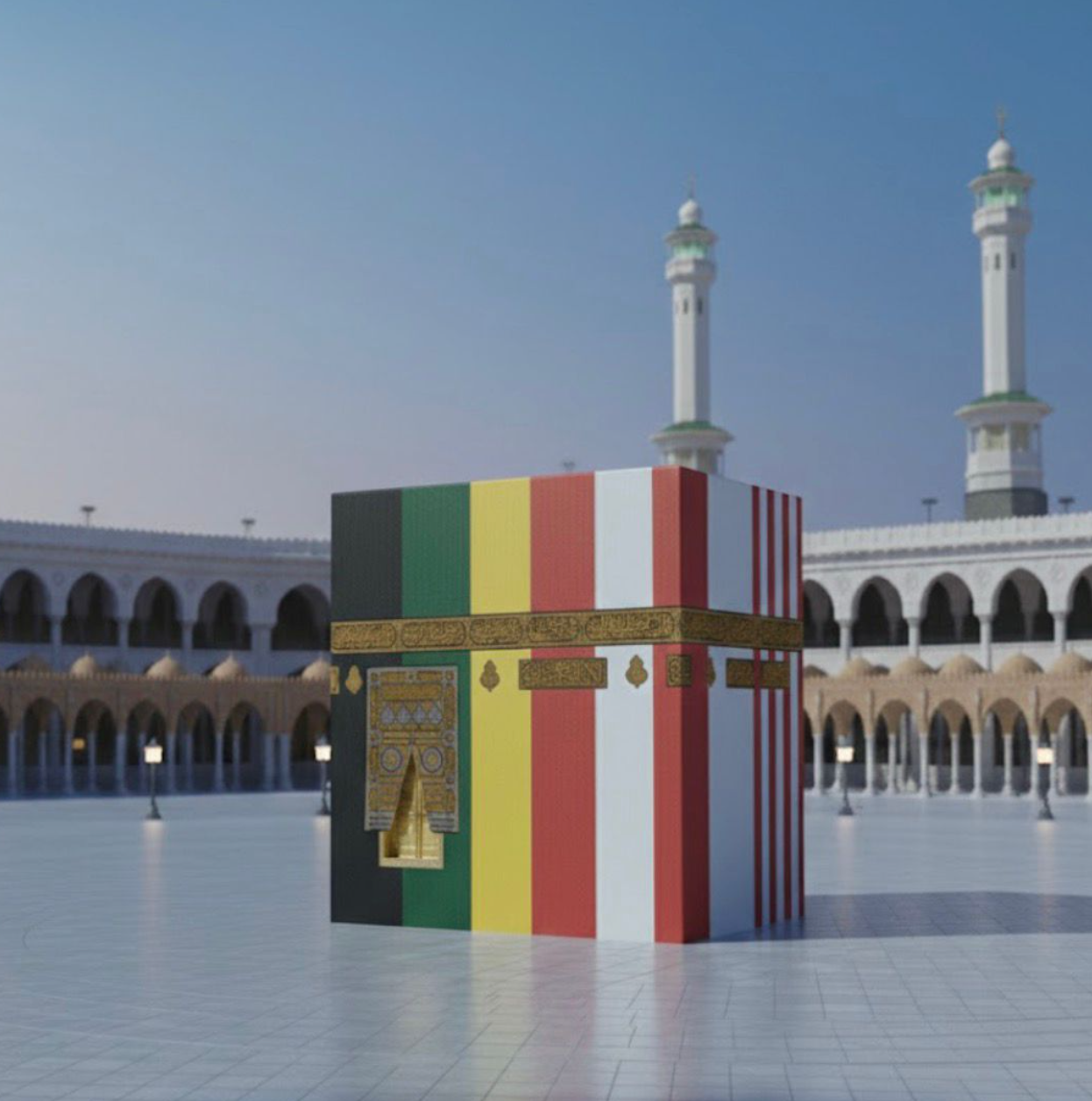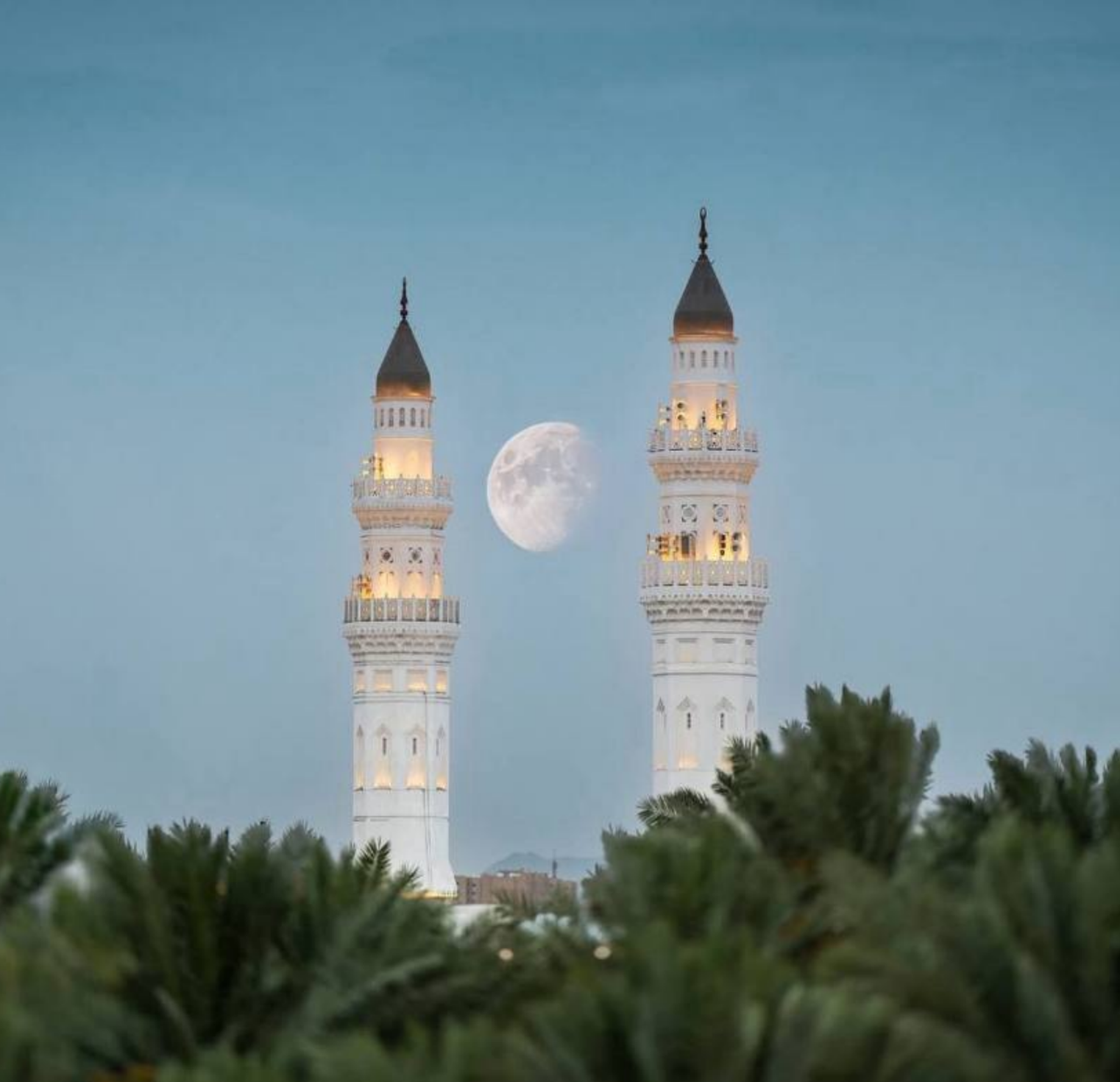Who is Abu Bakr?
Abū Bakr’s full name is ʿAbdullāh ibn Abī Quḥāfah Uthmān ibn ʿĀmir ibn ʿAmr ibn Kaʿb ibn Saʿd ibn Taym ibn Murrah ibn Kaʿb ibn Luayy, connecting him to the Prophet ﷺ through the lineage of Murrah. He belonged to the Banu Taym sub-tribe of Quraysh. His father nicknamed him Abu Bakr, where Bakr refers to a young camel. He was born in Makkah two to three years after the Prophet ﷺ.
Imām Mālik رحمه الله stated, “The Salaf would teach their children love for Abū Bakr and ʿUmar as they would teach them a Sūrah from the Qur’an.” (Muwaṭṭaʾ)
The blessed friendship between the Prophet ﷺ and Abū Bakr رضي الله عنه was so profound that the Prophet ﷺ said, “Abu Bakr has favoured me much with his property and company. If I were to take a Khaleel (intimate friend) other than my Lord, I would certainly have taken Abu Bakr, but the Islamic brotherhood and friendship are sufficient.” (Ṣaḥīḥ al-Bukhārī)
Key milestones of Abū Bakr رضي الله عنه:
- First man to accept Islam; his family was the first complete family to embrace the faith.
- First to publicly invite people to Islam; 5–6 of the ten companions promised Jannah accepted Islam through his dawah.
- Accompanied the Prophet ﷺ in Hijrah; called Al-Sahib (‘The Companion’) by Allah in Sūrat at-Tawbah.
- Given the title As-Ṣiddīq after Isra’ wal Mi’raj.
- Father-in-law of the Prophet ﷺ; his daughter was ʿĀʾishah رضي الله عنها.
- Compared to Prophets Ibrāhīm عليه السلام and ʿĪsā عليه السلام.
- Participated in all battles alongside the Prophet ﷺ.
- Angel Jibrīl عليه السلام conveyed Allah’s Salam to him.
- First to compile the Qur’an into a Mushaf.
- First to be called Khalīfah and received the pledge of allegiance.
The Prophet ﷺ once said, “Allah sent me as a Prophet to you, but you said, ‘You are telling a lie.’ Abu Bakr said, ‘He has said the truth,’ and consoled me with himself and his money.” (Ṣaḥīḥ al-Bukhārī) Even in the days of Jahiliyyah, Abu Bakr رضي الله عنه was tasked by the Quraysh to settle blood money and debts on behalf of the tribe.
Ahlus-Sunnah unanimously recognize Abū Bakr رضي الله عنه as the best of all mankind after the Prophets, followed by ʿUmar, Uthmān, and ʿAlī رضي الله عنهم. Imām Ibn Ṣalāḥ رحمه الله, citing Abu Manṣūr al-Baghdādī رحمه الله, confirms the Ijmāʿ that the four Khulafāʾ are the best of the Ṣaḥābah, with Abū Bakr being the foremost. He served as Khalīfah for two years.
Abu Bakr al-Ṣiddīq رضي الله عنه was not merely the first Caliph of Islam—he was the first ethical financier of the Ummah. From freeing the oppressed with his wealth to embodying fiscal integrity as a leader, his life offers a timeless model for building wealth that uplifts both dunya and ākhirah. Let's see what we can learn from his life:
1. Choosing the Right Industry
Before Islam, Abū Bakr رضي الله عنه was among Makkah’s most respected merchants. Ibn Saʿd records, “He was a man of commerce, noble, gentle, and generous. His trade was in fine cloths, and he was known for honesty and trustworthiness.” (al-Ṭabaqāt al-Kubrā)
Unlike exploitative Quraysh traders, he focused on permissible and beneficial commodities, avoiding ribā and oppression. The Prophet ﷺ said, “The truthful and trustworthy merchant will be with the Prophets, the truthful, and the martyrs.” (Sunan al-Tirmidhī)
Abū Bakr’s principle: engage in trades rooted in trust, transparency, and tangible benefit — the foundation of ḥalāl productivity.
2. Strategic Humanitarian Investment
Abū Bakr’s greatest “investments” were humanitarian. He spent much of his wealth liberating slaves persecuted for Islam: Bilāl ibn Rabāḥ, ʿĀmir ibn Fuhayrah, Nahdiyyah, Lubaynah, among others. Imam Ibn Kathīr writes, “He freed seven who were tortured for the sake of Allah, among them Bilāl.” (Tafsīr Ibn Kathīr) The price of Bilāl’s freedom was 200 dirhams, although Quraysh offered it for 1 uqiyah — Abū Bakr said he would have paid 100 uqiyahs if needed. (Musannaf Ibn Abī Shaybah)
The Prophet ﷺ said, “No wealth has benefitted me as did the wealth of Abu Bakr.” (Musnad Aḥmad) It was said that the Prophet ﷺ used his wealth as though it was his own. Abū Bakr رضي الله عنه gifted silver coins to the Prophet ﷺ to assist the migration of his family from Makkah to Madinah. At the time of this Hijrah, it is reported that Abū Bakr رضي الله عنه had only 5,000 dirhams with him and he took everything with him for the journey. He was initially a successful businessman who had over 40,000 dirhams, but he had spent a lot of money on freeing slaves and taking care of the Muslims over the past few years.
Urwah reported, “Abu Bakr al-Ṣiddīq emancipated seven individuals who were persecuted in the Path of Allah in Makkah, viz. Bilāl the Abyssinian, ʿĀmir ibn Fuhayrah, al-Nahdiyyah, her daughter, Umm Abees, Zinnirah, and the slave girl of Banu al-Muʿammal.” (Jāmiʿ al-Tirmidhī) This demonstrates Abū Bakr’s commitment to social impact investment centuries before the term existed — using his wealth to generate barakah for both the community and the Hereafter.
Allah revealed about him:
فَأَمَّا مَنْ أَعْطَىٰ وَاتَّقَىٰ • وَصَدَّقَ بِالْحُسْنَىٰ • فَسَنُيَسِّرُهُ لِلْيُسْرَىٰ
“As for the one who gives and is mindful (of Allah), and affirms the finest reward — We will ease for them the path of ease.” (Sūrat al-Layl 92:5–7)
Ibn ʿAbbās and Mujāhid noted that this verse referred specifically to Abū Bakr al-Ṣiddīq. (Jāmiʿ al-Bayān)
3. Strategic Relationship Building
Wealth grows not only through capital but through credibility and networks. Imam Ibn Hishām writes, “He was beloved among his people, approachable, knowledgeable in lineage, and known for good companionship.” (Sīrah Ibn Hishām)
Six of the ten companions promised Jannah accepted Islam through his dawah: ʿUthmān ibn ʿAffān, ʿAbd al-Raḥmān ibn ʿAwf, Ṭalḥah ibn ʿUbaydillāh, al-Zubayr ibn al-ʿAwwām, Saʿd ibn Abī Waqqāṣ, and Abū ʿUbaydah ibn al-Jarrāḥ. The Prophet ﷺ said, “Whoever guides someone to goodness will have a reward like one who did it.” (Ṣaḥīḥ Muslim) One cannot even imagine the mountains of good deeds in Abu Bakr's account. This is the real compounding wealth.
In Makkah, the early Muslims faced intense persecution, and many decided to migrate to Abyssinia. Abū Bakr رضي الله عنه was also among those who sought to migrate. When he reached Bark al-Ghimād, he met Ibn Ad-Daghīnah, the chief of the tribe of Qara, with whom he had previous business dealings. Ibn Ad-Daghīnah asked, “O Abū Bakr! Where are you going?”
Abū Bakr رضي الله عنه replied, “My people have turned me out (of my country), so I want to wander on the earth and worship my Lord.” Ibn Ad-Daghīnah said, “O Abū Bakr! A man like you should not leave his homeland, nor should he be driven out, because you help the destitute, earn their livings, keep good relations with your kith and kin, help the weak and poor, entertain guests generously, and assist the calamity-stricken. Therefore, I am your protector. Go back and worship your Lord in your town.” (Ṣaḥīḥ Muslim)
This account illustrates Abū Bakr’s reputation for integrity, generosity, and social responsibility, qualities that reinforced both his personal safety and his influence among Makkah’s people even during times of persecution. Abū Bakr’s networking was not transactional — it was relational daʿwah built on moral authority, proving that the highest return on investment comes from investing in people.
4. Complete Trust in Allah: The Competition with ʿUmar
During the campaign of Tabūk, the Prophet ﷺ called upon the believers to donate. ʿUmar bin al-Khaṭṭāb رضي الله عنه narrated, “The Messenger of Allah (ﷺ) commanded us one day to give sadaqah. At that time I had some property. I said, ‘Today I shall surpass Abu Bakr if I surpass him any day.’ I, therefore, brought half my property. The Messenger of Allah (ﷺ) asked, ‘What did you leave for your family?’ I replied, ‘A similar amount.’ Abu Bakr brought all that he had with him. The Messenger of Allah (ﷺ) asked him, ‘What did you leave for your family?’ He replied, ‘I left Allah and His Messenger for them.’ I said, ‘I shall never compete with you (Abu Bakr) in anything.’” (Abū Dāwūd)
This was tawakkul in action — surrendering wealth while trusting that Allah sustains. His model teaches that real wealth lies not in accumulation but in confidence in the Provider.
5. Forgiveness as an Investment
When Mistah ibn Uthāthah, a relative whom Abū Bakr financially supported, joined in the false slander (ḥadīth al-ifk) against his daughter ʿĀʾishah رضي الله عنها, Abū Bakr swore to stop helping him. Allah then revealed:
وَلَا يَأْتَلِ أُولُوا الْفَضْلِ مِنكُمْ وَالسَّعَةِ أَن يُؤْتُوا أُولِي الْقُرْبَىٰ وَالْمَسَاكِينَ وَالْمُهَاجِرِينَ فِي سَبِيلِ اللَّهِ ۖ وَلْيَعْفُوا وَلْيَصْفَحُوا ۗ أَلَا تُحِبُّونَ أَن يَغْفِرَ اللَّهُ لَكُمْ ۗ
“Let not those of virtue among you swear to withhold charity from relatives, the needy, and those who emigrated for Allah’s sake. Let them pardon and overlook. Do you not love that Allah should forgive you?” (Sūrat al-Nūr, 22) Abū Bakr immediately resumed his support, saying, “Yes, indeed — I wish that Allah should forgive me.” (Ṣaḥīḥ al-Bukhārī)
This was forgiveness as a spiritual investment — turning resentment into reward, and personal loss into divine gain.
6. Maintaining Financial Integrity
As Caliph, Abū Bakr embodied the principle of amānah (trust). At first, he continued to trade in the market until ʿUmar and Abū ʿUbaydah advised that he receive a modest stipend from the public treasury. He said, “If I take from the Muslims’ wealth, it will be only enough for my family’s sustenance, like any worker serving the public.” (Sunan al-Kubrā)
When he passed away, he instructed that the camel, water vessel, and garment purchased with public funds be returned to the Bayt al-Māl. (Tārīkh al-Rusul wal-Mulūk)
His caliphate demonstrated fiscal transparency and the ethics of stewardship — a public servant, not a private accumulator. His accountability became the gold standard for all Muslim governance.
7. Investing with the Hereafter in Mind
The Prophet ﷺ said:,“Whoever spends two of something in the way of Allah will be called from the gates of Paradise…” Abū Bakr asked if anyone could be called from all gates; the Prophet ﷺ replied: “Yes, and I hope you will be one of them.” (Ṣaḥīḥ al-Bukhārī)
Not just his wealth, he also invested his time as is clear to anyone reading his life. Abū Bakr رضي الله عنه’s generosity extended beyond wealth; he personally served those in need, even performing the most humble acts. Abu Salīḥ reported, “ʿUmar ibn al-Khaṭṭāb رضي الله عنه was committed to an old, disabled blind woman who lived on the outskirts of Madinah. At night he would draw water for her and manage her affairs. One night, when he came to her, he found that someone else had already preceded him and taken care of her needs. ʿUmar returned more than once, lest someone come to her before him, and he lay in wait. He found that it was Abū Bakr al-Ṣiddīq رضي الله عنه, who had already come to her; he was Caliph at the time.” (Tārīkh Dimashq)
Even as Caliph, Abū Bakr رضي الله عنه did not consider any act of service beneath him. He personally ensured the well-being of the vulnerable, anticipating their needs before others could act. Abū Bakr diversified not just his worldly trade but his spiritual portfolio — excelling in prayer, fasting, charity, and striving. His vision was not profit-centric but Paradise-centric: wealth as a means, not an end.
Abu Bakr’s Pillars of Business
- Diverse Trading Channels: Multiple routes across Makkah, Yemen, and Syria, with profit-sharing (muḍārabah). Abū Bakr diversified ethically — reducing risk and fostering economic circulation, a precursor to modern portfolio balance.
- Ethical Practices: Truthfulness and transparency ensured barakah. Abū Bakr’s truthfulness (ṣidq) and trust (amānah) in trade were so well known that they became his daʿwah tools. Ethical credibility was his greatest currency.
- Strategic Relationship Building: His business partnerships evolved into the backbone of the early Islamic movement. Those who traded with him became the very men who would lead the Ummah. His dealings were more than contracts — they were bridges of trust.
Abū Bakr al-Ṣiddīq رضي الله عنه viewed wealth not as possession but as responsibility. He diversified his means but unified his intention — seeking Allah’s pleasure above all. His approach combined ethics, empathy, and efficiency, proving that:
“Money is not the goal; it is the tool — a servant of the soul, not its master.”
Through his example, Islam offers a timeless model of wealth: not hoarded, but circulated; not worshiped, but wielded; not wasted, but invested — in both dunya and ākhirah.













